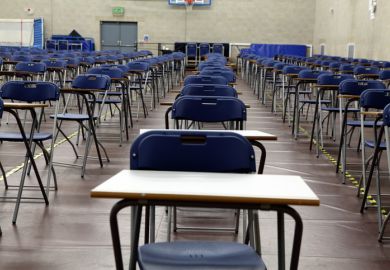Contract cheating services have taken advantage of the shift to online teaching by offering to take entire modules for students, including attending classes, completing assignments, and sitting exams.
Online searches reveal several pages of advertisements from essay mills targeting Chinese students who are taking courses from overseas universities, with services tailored for Zoom classes and online coursework.
One company offers services that cover the entire journey of an online course, including discussions, assignments and exams. Another agency has different packages for students to choose from, with options including one-stop coaching and assistance throughout an online or blended module.
Asked about the cost of taking Zoom classes for a student, a customer service representative of one company told Times Higher Education: “If there is just moderate amount of homework, the cost should be from $100 (£72) to $150 per week – it depends on the quotation of the writer and the course syllabus.” Another agency said it charged between $600 and $1,500 for a whole module.
Agencies try to ease potential clients’ concern about being caught by offering help with communications. One service provider claims that its writers will draft emails for students and, if lecturers have any questions, “all you need to do is to forward the email”.
Thomas Lancaster, a senior teaching fellow at Imperial College London and an expert in contract cheating, said that essay mills had offered to complete entire programmes of assessment for several years now, but that the Covid-driven shift to online learning meant that “the availability of this service has come up in the discussion”.
According to Chinese media, an undercover reporter received 10 orders in one day after joining a coaching company. The journalist was told that the firm’s business was “exploding” during the pandemic.
Phillip Dawson, associate director of the Centre for Research in Assessment and Digital Learning at Deakin University, said that addressing this type of misconduct “will require a mix of positive academic integrity and adversarial assessment security”.
“Positive approaches, like educating students on the problems with these services, are essential,” Professor Dawson said. “One approach to securing real-time activities like exams is high-quality biometrics that verify the student is who they say they are, like matching students’ typing, voice or face to data that has been collected under controlled conditions.”
But he admitted that trying to stop people from “wilfully giving their identity away” was very hard.
Dr Lancaster said that universities “need to know the correct people are accessing their systems to avoid all the cybersecurity risks that come from allowing contract cheating providers access to their intellectual property”.
However, Professor Dawson added: “If teaching stays on Zoom, cheating will be there as well.”
POSTSCRIPT:
Print headline: Cheating firms offer Zoom proxy
Register to continue
Why register?
- Registration is free and only takes a moment
- Once registered, you can read 3 articles a month
- Sign up for our newsletter
Subscribe
Or subscribe for unlimited access to:
- Unlimited access to news, views, insights & reviews
- Digital editions
- Digital access to THE’s university and college rankings analysis
Already registered or a current subscriber? Login








